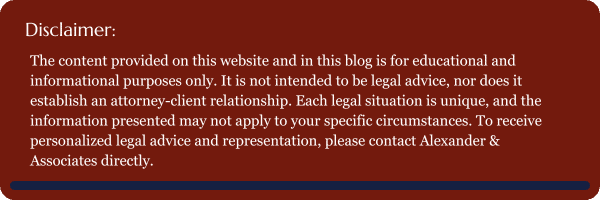Divorce is a complex and emotionally challenging process, and one of the key aspects to navigate is the division of marital assets and debts. In many jurisdictions, Colorado included, the principle of equitable distribution is employed to ensure a fair and just allocation of property. In this guide, we’ll delve into the concept of equitable distribution and how it impacts the division of assets during divorce proceedings.
Equitable Distribution: A Fair Approach to Property Division
1. The Fairness Standard
Equitable distribution operates on the principle of fairness. Unlike a strict 50/50 division, it aims to achieve a just outcome by considering various factors relevant to each case.
2. Factors Considered by the Court
When courts determine how to distribute marital property, they take into account a range of factors. These may include the duration of the marriage, the financial contributions of each spouse, their earning capacities, and the needs of each party, especially if one is financially dependent.
3. Marital vs. Separate Property
Equitable sharing involves classifying property as either marital or separate. Marital property encompasses assets and debts acquired during the marriage, while separate property includes assets acquired before the marriage or through inheritance or gift.
4. Assets Subject to Distribution
Assets subject to equitable distribution include real estate, bank accounts, retirement accounts, investments, personal property, and other valuable items acquired during the marriage.
5. Debts and Liabilities
Equitable distribution also addresses the fair division of marital debts and liabilities, such as mortgages, loans, and credit card debt.
6. Flexibility in Distribution
Unlike community property systems that mandate an equal split, equitable distribution allows for flexibility. Courts can allocate property and debts in a way that considers the unique circumstances of each case.
7. Court Discretion
Judges have discretion in determining the distribution of marital assets and debts based on the specific factors presented in each case. This discretion allows for a more tailored and just outcome.
8. Post-Divorce Financial Considerations
Equitable distribution ensures that both spouses are in a reasonable financial position post-divorce. This involves considerations of future earning potential, health, and other relevant factors.
Equitable distribution is common for many reasons, but it has both advantages and disadvantages.

Advantages of Equitable Distribution:
Flexibility:
-
-
One of the key advantages of equitable distribution is its flexibility. Unlike a strict 50/50 split in community property states, equitable distribution allows courts to consider various factors and tailor the division of assets and debts to the unique circumstances of each case.
-
Fairness Focus:
-
-
Equitable distribution aims to achieve a fair and just outcome. It takes into account factors such as the contributions of each spouse, the length of the marriage, and individual financial needs, striving for a distribution that is perceived as fair.
-
Consideration of Future Circumstances:
-
-
Equitable distribution often involves considering the future financial circumstances of each party. This may include factors such as earning potential, health, and other considerations that could impact a spouse’s financial situation post-divorce.
-
Complex Financial Situations:
-
-
In cases with complex financial portfolios, businesses, or significant disparities in earning potential, equitable distribution may be better suited to address the intricacies of the financial landscape.
-
Encourages Cooperation:
-
-
The equitable distribution process may encourage communication and cooperation between divorcing spouses. It provides a platform for negotiation and may result in more amicable resolutions.
-
Disadvantages of Equitable Distribution:
-
Subjectivity:
-
-
The subjective nature of equitable distribution can be a disadvantage. Since the outcome depends on the judge’s interpretation of what is fair, it may lead to varying outcomes in similar cases and may be perceived as less predictable.
-
-
Complexity:
-
-
Equitable distribution can be more complex than a straightforward 50/50 split. It may involve a detailed analysis of various factors, potentially leading to more prolonged proceedings and higher legal costs.
-
-
Discretionary Court Decisions:
-
-
Courts have significant discretion in determining the division of assets and debts. While this flexibility can be an advantage, it also means that the outcome may depend on the judge’s individual perspectives and interpretations.
-
-
Potentially Longer Proceedings:
-
-
The additional factors considered in equitable distribution cases may contribute to longer divorce proceedings. This could lead to increased stress and emotional strain on the parties involved.
-
-
Uncertainty:
-
-
The lack of a predetermined formula for property division can create uncertainty for divorcing spouses. They may be unsure about the division outcome until the court makes a final decision.
-
In summary, the advantages and disadvantages depend on the individual circumstances of the parties involved. While it provides flexibility and aims for fairness, the subjectivity and potential complexity of the process may pose challenges. Consulting with a family law attorney can help individuals understand how equitable distribution applies to their specific situation and navigate the divorce process effectively.
Consult with a Knowledgeable Family Law Attorney
Understanding asset division is crucial for anyone navigating the divorce process. Laws and guidelines can vary by jurisdiction, making it essential to consult with a knowledgeable family law attorney. An experienced attorney can provide guidance, ensuring that your rights are protected and that the division of assets aligns with the principles of asset distributed equitably.
If you have questions about equitable distribution or need legal assistance with your divorce case, contact Alexander & Associates today. Our dedicated team of Fort Collins family law attorneys is here to guide you through the complexities of divorce, working towards a fair and just resolution tailored to your unique circumstances.




0 Comments